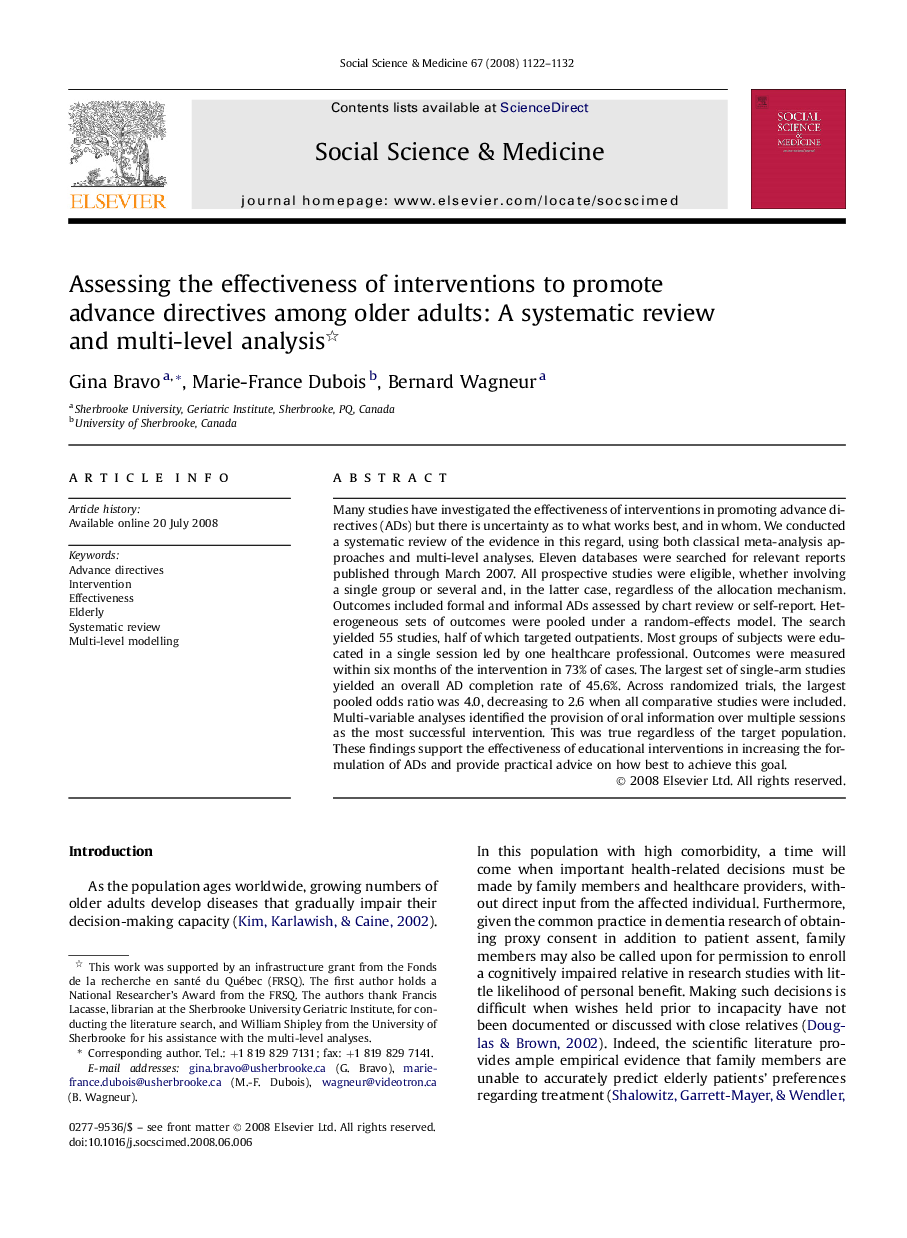| Article ID | Journal | Published Year | Pages | File Type |
|---|---|---|---|---|
| 954155 | Social Science & Medicine | 2008 | 11 Pages |
Many studies have investigated the effectiveness of interventions in promoting advance directives (ADs) but there is uncertainty as to what works best, and in whom. We conducted a systematic review of the evidence in this regard, using both classical meta-analysis approaches and multi-level analyses. Eleven databases were searched for relevant reports published through March 2007. All prospective studies were eligible, whether involving a single group or several and, in the latter case, regardless of the allocation mechanism. Outcomes included formal and informal ADs assessed by chart review or self-report. Heterogeneous sets of outcomes were pooled under a random-effects model. The search yielded 55 studies, half of which targeted outpatients. Most groups of subjects were educated in a single session led by one healthcare professional. Outcomes were measured within six months of the intervention in 73% of cases. The largest set of single-arm studies yielded an overall AD completion rate of 45.6%. Across randomized trials, the largest pooled odds ratio was 4.0, decreasing to 2.6 when all comparative studies were included. Multi-variable analyses identified the provision of oral information over multiple sessions as the most successful intervention. This was true regardless of the target population. These findings support the effectiveness of educational interventions in increasing the formulation of ADs and provide practical advice on how best to achieve this goal.
